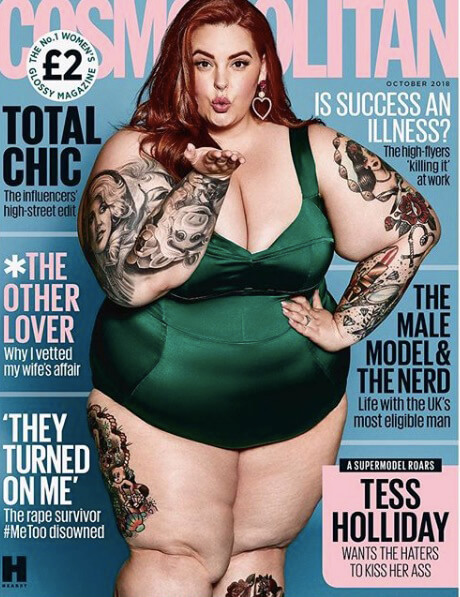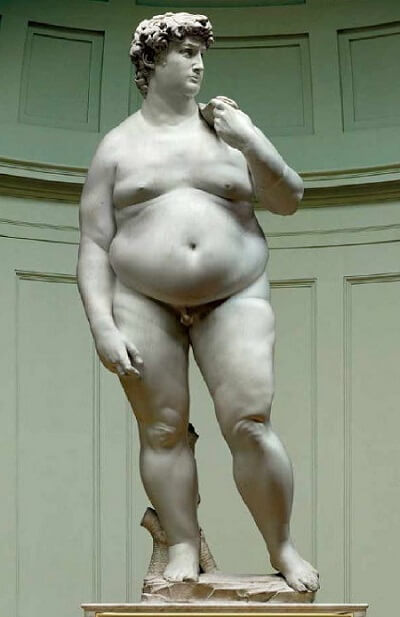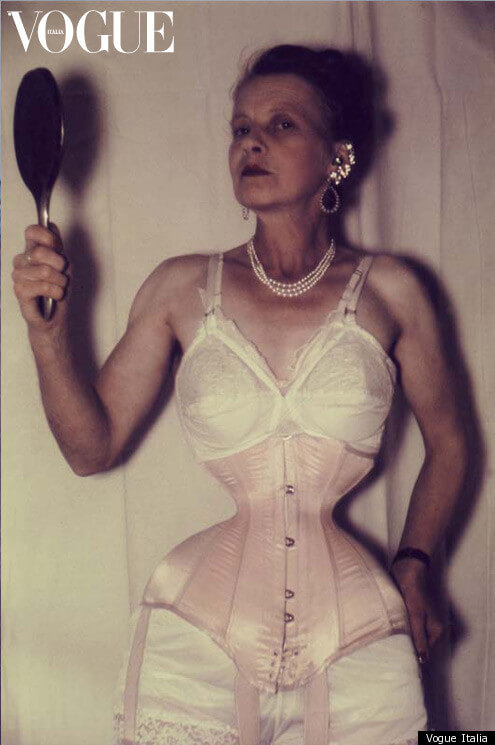If there is one thing CERTAIN about people who weigh 300 lbs. or more it is this: They are seriously screwed up psychologically. No self-respecting person would allow themselves to grow into such a mountain of ugly, unhealthy lard.
Trouble is, when we suggest this is not a good state to be in, apparently WE are the abusers and they are the “victims”. Victims of what? Gluttony, idiocy, self-negligence?
We have a new term “body shaming” apparently. I’ve never heard of it. But apparently there are despicable people around who talk about extreme obesity as if it were a bad thing (don’t write to me, I’m being ironic!)
What started this? Apparently Cosmopolitan Magazine UK just featured a size-26 model on the cover of their latest issue. While feminists and so-called body positivity activists are celebrating the fact that a 300-pound woman got to be on the cover of such a popular magazine, what kind of message is this “activism” is really sending?
Fat is healthy? I don’t think so. Obesity is a top risk factor for virtually every major disease that plagues modern society: Heart disease, arthritis, type 2 diabetes, and even cancer.
As Mike Adams remarked in his network piece, “Promoting healthy minds and bodies is not the same as promoting obesity, which is already rampant in most Western nations like the United States and the United Kingdom. Critics have been quick to point out the disparity between the two and have lambasted Cosmo UK for promoting unhealthy lifestyle choices.”

[Source: Cosmopolitan.com/UK]
Piers Morgan, one of my favorite British TV presenters, suggested that promoting morbid obesity was just as bad for women as promoting size-0 models. He’s correct.
In response, Tess Holliday, the blobby “body positivity” activist and Cosmo cover girl, told TMZ (a trashy tabloid news website) “Worry about what horrible people you are by whining about how me being on the cover of a glossy magazine impacts your small-minded life.”
So she is clearly stupid and intolerant, as well as gluttonous and unhealthy.
I quote Mike Adams again: “It is far more small-minded to willfully ignore the true cost of obesity. Morbid obesity is not just costly to the individual whose health may suffer. For the healthcare system, obesity is an increasingly costly burden. In the United States alone, estimates suggest that obesity costs between $147 billion and $210 billion every year. Data strongly indicates that as a person’s BMI goes up, the number of sick days increases, as do medical claims and healthcare costs. It’s not politically correct to say, but bigger people are more expensive to care for, for a variety of reasons.
Even the “moderately” obese (BMI of 30 to 35) are twice as likely to need prescription medications to manage medical conditions as their healthy-weighted counterparts.
Who is to pay for this? The obese individuals?
Obesity does not just come at a cost to the individual, but to tax-payers as well. The financial burden of obesity is getting passed on to other non-obese people, both here in the U.S. ($6.9 billion for Medicare and Medicaid combined) and in the U.K., where single-payer healthcare reigns.
The absurdity of all this is that obesity is both a preventable and easily treatable folly, in which sound knowledge of diet and lifestyle modifications can help the individual who is struggling. It is one the biggest drivers in preventable disease.
See my masterwork Diet Wise, for all you need to know about constructing your own ideal diet, which will enable you to live 20 – 30 years more than people like Ms. Holliday can expect.
Obviously, I am not advocating that we are cruel or nasty to overweight people. They need help. But to give them pole position in telling the rest of us what is right and what isn’t (as Cosmopolitan Magazine has done) is to assert that overweight to a ridiculous degree is NOT a health issue; the real issue is the rest of us clunks who don’t get that it’s about the “freedom” to kill yourself with overeating or faulty eating.
More to the point, “political correctness” on the matter of weight has gotten so out of control that doctors who try to instill in their patients a sense of healthy eating are being accused of “fat shaming.” This politically-correct culture has become so toxic that medical professionals can’t even do their jobs without being attacked.
Weight is obviously a delicate subject; no one wants to be made to feel bad about themselves. But there is a difference between empowering them to make the changes necessary to improve their health and telling them they are just fine as they are.
Fat Activism
This is a new phenomenon sweeping the world, in competition with health, science, reason and human esthetics. It’s called “fat activism”. Fat is beautiful (apparently). Just how beautiful is this statue of Michelangelo, burdened with fat? Who is kidding who, Ms. Holliday? The rest of you morbidly obese people?

This is a spoof. See the real Michelangelo David here.
Virgie Tovar, a woman described in her own bio as “one of the nation’s leading experts and lecturers on fat discrimination and body image,” was invited to speak to a group of students at the University of Minnesota’s School of Public Health. Her talk, ‘Dispelling Myths: Fat, Fatphobia, and Challenging Social Stereotypes,’ was designed to help students understand that ‘fat phobia’ is rampant in a ‘white, heteronormative society’ that is looking to actively oppress people with larger body types.
Society’s bias against fat people is, according to her, just a form of bigotry and discrimination, evident in everything from sexual preferences to the size of seats on public transportation. Even to suggest to people they lose weight, for their own good, is just “fat oppression”. She referred to diet and exercise as “social constructs,” and said that “weight loss is not a realistic goal for most people.”
Well, it’s not a realistic goal for those who INSIST on overeating, despite all urging to the contrary.
Certainly it’s true that our modern society reinforces an unhealthy idealized version of beauty. Women, particularly, are made to feel that their bodies should be as thin as those of fashion models. But to say that is wrong is not the same as saying women should be morbidly obese and not to worry about mere health issues.
Of course, not everyone can be expected to have the physique of a Michelangelo statue (why not, really?), but no one should ever be “shamed” for being fat.
The sane approach to the issue would be to encourage people to maintain a reasonably healthy weight through proper diet and exercise, while ignoring any societal pressure suggesting one must look like a supermodel or an Olympic swimmer.
But even that is to go against history. In the 17th century, women had impossibly small waists and tightly laced bosoms. That’s fashion. The truth is, women will go to whatever lengths they feel necessary to look sexy and exciting.
But tight corseting was also horribly unhealthy and caused endless health problems.

In the same way, gross obesity is not sexy and is a severe health hazard.
In Tovar’s view, dieting is wrong in and of itself, and should be discouraged. Obese people should not be encouraged to lose weight, and should rebel against “thin privilege.” Let them eat what they want, whenever they want and however much they want.
Is she saying, “You have the right to look terrible and die young?” Yes, that’s true. But don’t I in turn have the right not to pay for that gluttony and stupidity in my taxes? For decades I have thought there should be a financial penalty for the cost of healthcare to anyone who is more than 20% overweight.
That way, anyone who takes care of themselves and eats correctly is not penalized and does not have to pay for the so-called “fat extremists”.
